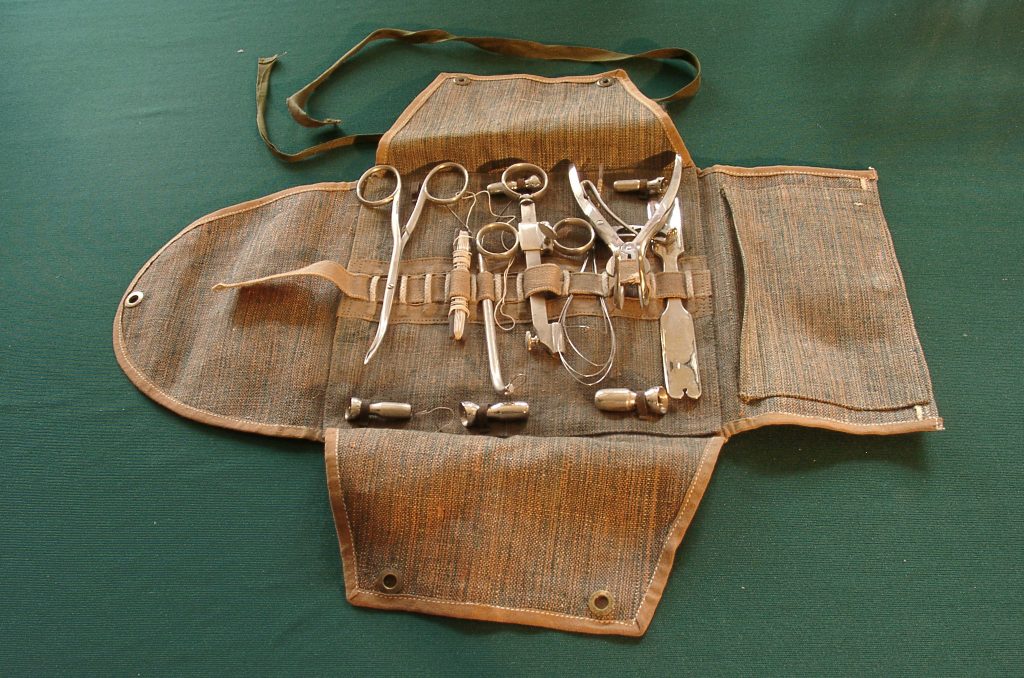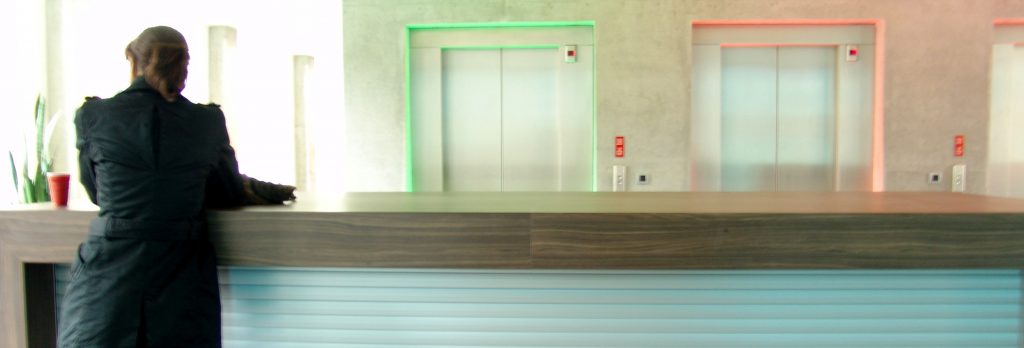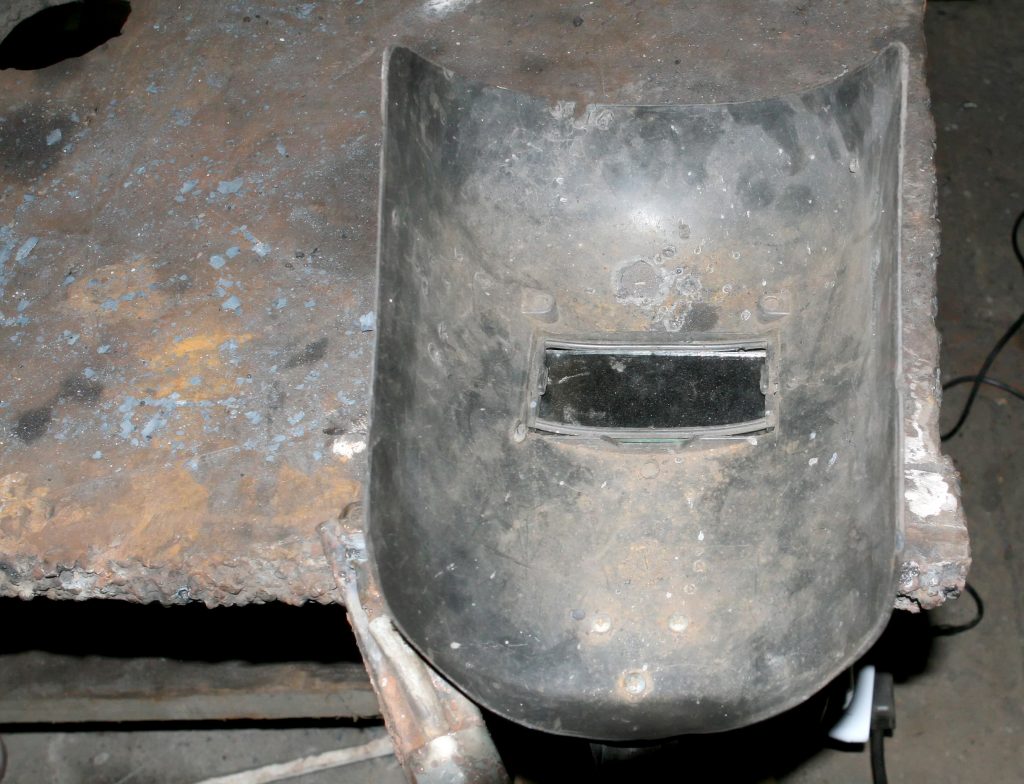 In any lawsuit, the party seeking relief must carry its burden by proving every element of the claim or claims which it has raised. By doing so, the party satisfies to the court that it is entitled to the relief which it seeks. One such element pivotal to all claims for workers’ compensation benefits is that the alleged injury arose out of and during employment. Proving a work-related injury solely on the injured person’s testimony can, however, doom a workers’ compensation case. This is a lesson that workers’ compensation claimant Isaac Garcia, who worked for Rouses Market in Metairie, Louisiana, learned the hard way.
In any lawsuit, the party seeking relief must carry its burden by proving every element of the claim or claims which it has raised. By doing so, the party satisfies to the court that it is entitled to the relief which it seeks. One such element pivotal to all claims for workers’ compensation benefits is that the alleged injury arose out of and during employment. Proving a work-related injury solely on the injured person’s testimony can, however, doom a workers’ compensation case. This is a lesson that workers’ compensation claimant Isaac Garcia, who worked for Rouses Market in Metairie, Louisiana, learned the hard way.
In early November of 2013, Mr. Garcia filed a claim for failure to pay benefits, naming both Rouses Enterprises, Inc., as well as its insurer, Strategic Comp, for a work-related injury he allegedly sustained while working for Rouses Market in Metairie. Mr. Garcia claimed that on September 15, 2013, while moving a box during work he felt a sharp and immediate pain, beginning in his wrist and right thigh, and radiating to his lower back. The incident was not witnessed by anyone other than Mr. Garcia himself. Mr. Garcia returned to work for a brief period, but left work shortly after the incident. Mr. Garcia failed to inform his supervisor of the injury out of fear of termination. This was in direct violation of Rouses’ policy which required all on the job injuries to be reported immediately.
In the days that followed, Mr. Garcia spoke with his supervisor over the phone but again failed to mention the injury sustained on September 15. On September 20, the day before Mr. Garcia’s next shift, the pain had escalated to the point that Mr. Garcia considered seeking medical attention at the emergency room, but decided to consult an attorney first. The attorney referred Mr. Garcia to a doctor who found Mr. Garcia’s condition consistent with lumbar disc displacement. Mr. Garcia saw a second doctor in relation to medication for pain management. Finally, on September 24, 2013, more than a week after Mr. Garcia’s injury and subsequent to seeking medical treatment, Mr. Garcia returned to Rouses and filled out an accident report in relation to the September 15 injury. Yet Mr. Garcia failed to disclose neck and back injuries he sustained approximately a year and a half prior to being hired by Rouses. Ultimately, Rouses and Strategic Comp denied Mr. Garcia any form of workers’ compensation benefits. The claim was submitted to the Workers’ Compensation Judge (“WCJ”) who found Mr. Garcia was not entitled to benefits, a decision which was later upheld by the Louisiana Fifth Circuit Court of Appeal.
 Louisiana Personal Injury Lawyer Blog
Louisiana Personal Injury Lawyer Blog


 Upon entering a facility for medical treatment, we all hope that we will be treated properly. However, what happens when a medical or health care professional deviates from the profession’s standards? What happens if there is a mistake in the diagnosis or treatment? Such victims certainly have an opportunity to seek redress however sometimes a jury verdict can prove disappointing. This case out of Jefferson Parish demonstrates what happens when a trial court jury does not get the proper instructions necessary for deciding a complex medical malpractice claim in Louisiana.
Upon entering a facility for medical treatment, we all hope that we will be treated properly. However, what happens when a medical or health care professional deviates from the profession’s standards? What happens if there is a mistake in the diagnosis or treatment? Such victims certainly have an opportunity to seek redress however sometimes a jury verdict can prove disappointing. This case out of Jefferson Parish demonstrates what happens when a trial court jury does not get the proper instructions necessary for deciding a complex medical malpractice claim in Louisiana.  What starts out as an entertaining night out for a concert with friends, ends with painful injuries. Instead of enjoying your favorite music with companions, you must go to the hospital to treat injuries sustained due to negligent maintenance of the concert venue. You are now recovering from your injuries and are faced with medical expenses. You know that you shouldn’t be responsible for the medical bills; after all, you are hurt because someone failed to do their job. But who exactly is responsible? Determining the party responsible for personal injuries was a recent issue in a case out of Baton Rouge.
What starts out as an entertaining night out for a concert with friends, ends with painful injuries. Instead of enjoying your favorite music with companions, you must go to the hospital to treat injuries sustained due to negligent maintenance of the concert venue. You are now recovering from your injuries and are faced with medical expenses. You know that you shouldn’t be responsible for the medical bills; after all, you are hurt because someone failed to do their job. But who exactly is responsible? Determining the party responsible for personal injuries was a recent issue in a case out of Baton Rouge.  School bullying is a commonly discussed problem in our generation. Parents are often faced with dilemmas on how to protect their children and instruct them in dealing with bullies at school. In earlier eras perhaps this was considered a problem for the individual family to bear alone. In a recent case out of Plain Dealing, Louisiana however, the Louisiana Second Circuit Court of Appeal affirmed that school teachers and the school board can now be held liable for such bullying and its effects.
School bullying is a commonly discussed problem in our generation. Parents are often faced with dilemmas on how to protect their children and instruct them in dealing with bullies at school. In earlier eras perhaps this was considered a problem for the individual family to bear alone. In a recent case out of Plain Dealing, Louisiana however, the Louisiana Second Circuit Court of Appeal affirmed that school teachers and the school board can now be held liable for such bullying and its effects.  It is no secret that lawsuits are expensive creatures. It is perhaps baffling then that a party would retain an attorney, file a lawsuit, and maintain that lawsuit for over thirteen years without sufficiently actively pursuing that lawsuit. Yet, that is exactly what happened in a recent case out of Livingston Parish. And as the case explains, such inactivity within a case subjects the lawsuit to dismissal for abandonment. Money and time wasted for all parties involved.
It is no secret that lawsuits are expensive creatures. It is perhaps baffling then that a party would retain an attorney, file a lawsuit, and maintain that lawsuit for over thirteen years without sufficiently actively pursuing that lawsuit. Yet, that is exactly what happened in a recent case out of Livingston Parish. And as the case explains, such inactivity within a case subjects the lawsuit to dismissal for abandonment. Money and time wasted for all parties involved.  During litigation, a party may attempt to claim some form of privilege as an avenue not to produce certain evidence. There are various types of privileges that may be asserted. One that is familiar to many is attorney-client privilege. One that is not as familiar is work-product privilege. Work-product privilege is claimed in civil cases and is used to keep materials that are created in anticipation of litigation from being discovered by opposing counsel. However, to assert work-product privilege the party claiming it must be an adverse party in the lawsuit. A non-party is not entitled to work-product privilege, as Louisiana State recently learned when the Louisiana Second Circuit Court of Appeal affirmed that work-product privilege can only be claimed by an adverse party.
During litigation, a party may attempt to claim some form of privilege as an avenue not to produce certain evidence. There are various types of privileges that may be asserted. One that is familiar to many is attorney-client privilege. One that is not as familiar is work-product privilege. Work-product privilege is claimed in civil cases and is used to keep materials that are created in anticipation of litigation from being discovered by opposing counsel. However, to assert work-product privilege the party claiming it must be an adverse party in the lawsuit. A non-party is not entitled to work-product privilege, as Louisiana State recently learned when the Louisiana Second Circuit Court of Appeal affirmed that work-product privilege can only be claimed by an adverse party. Unfair treatment at work can, unfortunately, be a common occurrence. While always annoying, the treatment can sometimes rise to such an egregious level that an employee feels justified in filing a lawsuit against the employer; especially if the aggrieved employee feels that there are racially motivated variances in treatment. As with all cases, however, the evidence is the key that unlocks the door to a successful lawsuit. For Rosie Washington, a former employee of the Louisiana State Penitentiary, an employment discrimination case devoid of evidence kept her victory behind locked doors.
Unfair treatment at work can, unfortunately, be a common occurrence. While always annoying, the treatment can sometimes rise to such an egregious level that an employee feels justified in filing a lawsuit against the employer; especially if the aggrieved employee feels that there are racially motivated variances in treatment. As with all cases, however, the evidence is the key that unlocks the door to a successful lawsuit. For Rosie Washington, a former employee of the Louisiana State Penitentiary, an employment discrimination case devoid of evidence kept her victory behind locked doors.  Workers’ compensation pays for an employee’s medical expenses and lost wages when an employee is injured on the job. But what happens when an employee is injured while performing his or her job in a manner not approved of by the employer? Recently, a Court of Appeal for the State of Louisiana addressed this issue in a case involving a man from St. Landry Parish.
Workers’ compensation pays for an employee’s medical expenses and lost wages when an employee is injured on the job. But what happens when an employee is injured while performing his or her job in a manner not approved of by the employer? Recently, a Court of Appeal for the State of Louisiana addressed this issue in a case involving a man from St. Landry Parish. Under Louisiana law, an employee who is injured while on the job is entitled to “vocational rehabilitation services” (services that help an individual overcome his or her own physical or mental disability in order for that individual to return to work) provided by a vocational rehabilitation counselor.
Under Louisiana law, an employee who is injured while on the job is entitled to “vocational rehabilitation services” (services that help an individual overcome his or her own physical or mental disability in order for that individual to return to work) provided by a vocational rehabilitation counselor.  Be it alleged abuses in the welfare system or lying on their tax return, individuals abusing the system has been a hot button issue for the past couple of years. But what happens when someone gets caught? How does the law handle the people who abuse the system? Recently, a Louisiana Court of Appeal held that concealing previous injuries resulted in a forfeiture of workers’ compensation benefits (insurance that pays wages and medical costs for an injury occurring while at work) and the payment of restitution (compensation ordered by the court for restoration of money to its rightful owner) for a Saint Martinville concrete finishing business owner.
Be it alleged abuses in the welfare system or lying on their tax return, individuals abusing the system has been a hot button issue for the past couple of years. But what happens when someone gets caught? How does the law handle the people who abuse the system? Recently, a Louisiana Court of Appeal held that concealing previous injuries resulted in a forfeiture of workers’ compensation benefits (insurance that pays wages and medical costs for an injury occurring while at work) and the payment of restitution (compensation ordered by the court for restoration of money to its rightful owner) for a Saint Martinville concrete finishing business owner.